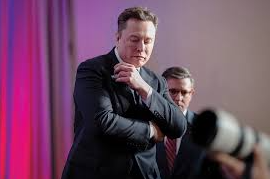
Lawsuit Filed Right After Trump’s Inauguration Questions the Legitimacy of the ‘Department of Government Efficiency’
A legal challenge has been filed within moments of Donald Trump’s inauguration, questioning the validity of the “Department of Government Efficiency” (Doge) led by Elon Musk. The 30-page lawsuit, acquired by The Washington Post, argues that this newly formed government advisory committee infringes on federal transparency laws. The suit contends that Doge, which Trump claims to have established, does not adhere to essential regulations regarding public disclosure, hiring processes, and operational transparency.
The National Security Counselors, a public interest law firm, asserts that Doge qualifies as a “federal advisory committee”, a designation that demands balanced representation and public accessibility to its meetings. The lawsuit stresses that all meetings, even those held electronically, must be open to public observation, as required by federal law. However, the committee has yet to fulfill these obligations, with records of its activities reportedly kept secret.
Doge, which has already hired numerous staffers working from SpaceX’s Washington, DC office, communicates primarily through encrypted apps like Signal. The project, led by Musk and tech entrepreneur Vivek Ramaswamy, aims to reduce government inefficiency by cutting down on programs and personnel, though Ramaswamy is expected to step away from the initiative in light of his gubernatorial campaign in Ohio. Reports suggest that Musk has grown dissatisfied with Ramaswamy’s level of involvement in the project, which seeks to overhaul several government agencies and processes.
The legal controversy surrounding Doge is anticipated, with Musk himself acknowledging the potential for “lawfare” tactics to be used against him. While the precise scope of the initiative remains unclear, it is described as an advisory committee with no direct authority to implement government changes on its own.
As per reports from the New York Times, those involved with Doge, including Musk and Ramaswamy, will not receive compensation for their roles and are classified as “special government employees” under federal regulations. The initiative is not intended to be incorporated as an external entity but rather functions as an informal collective, loyal to Musk’s leadership and vision.
Prospective hires for the project include prominent Silicon Valley figures such as Marc Andreessen, Shaun Maguire, and Baris Akis. However, critics, like Sam Hammond, Senior Economist at the Foundation for American Innovation, argue that Doge does not fulfil the legal criteria to be considered a federal advisory committee. Hammond suggests that Doge is, in reality, more of a branding exercise for Trump’s broader reform agenda.









